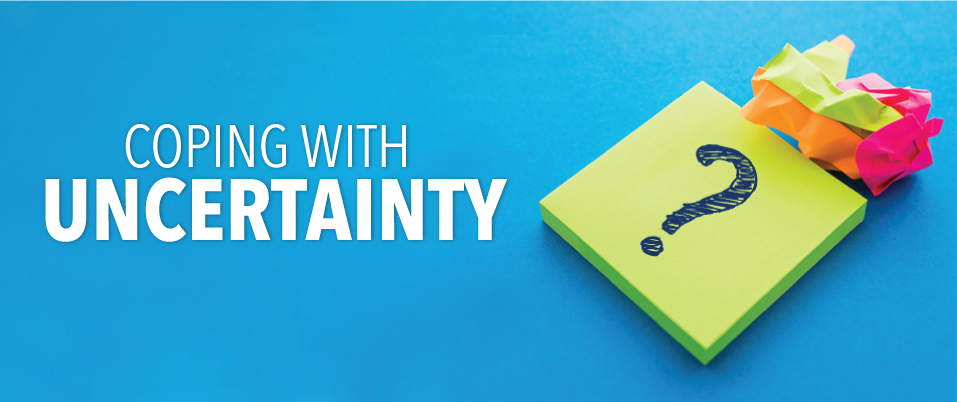
Coping with Uncertainty
Spring has finally arrived, and it looks like warm weather is here to stay. But the pandemic presses on as we wait for more people to get vaccinated and infection rates to decrease. Some of us are ready to emerge from isolation, while others may be feeling anxious about what lies ahead of us. If you are someone who lives with anxiety, it is natural to want to know what’s coming next—to seek to understand what the future holds, so that we can figure out how to stay safe.
The truth is that we can’t know what lies ahead.
But if uncertainty is an inevitable part of living, how do we make peace with it?
Here are some tips to help:
Stay in the Moment
Learning to be present—that is, to live in the “now”, is one of the most important mindsets you can develop to better cope with uncertainty.
Most of us spend so much time telling ourselves stories about what the future will look like, that we miss out on what is happening right in front of us.
Think about the stories you’ve told yourself in the past: Did any of them play out the way you imagined it?
The likelihood is that they didn’t – that you couldn’t have pictured yourself exactly where you are now a year—or even a few months—ago. That’s because the future is never exactly how we predict it will be. This might seem scary, but it can actually be a source of comfort to know that you have no choice but to embrace the present moment.
Look around you, feel the seat under you, listen to the sounds in the room, feel the air on your skin. Practice living into the present moment—your life only happens now.
Identify Distortions
In Cognitive Behavioral Therapy, we often talk about cognitive distortions: patterns of thinking that are unhelpful, inaccurate and can actually cause us harm. Catastrophizing and Fortune telling are two common distortions that can get us into trouble. That is, thinking we know what will happen before it does.
Notice the stories you tell about the future and identify if there are any distortions in them. If we are able to see that our thoughts are distorted in some way, there is likely another way to look at this situation in a more neutral tone.
As we begin to notice when our thinking is distorted and practice living into the present moment, those distortions can loosen their grip on us.
Surrender and Trust
We can’t predict what the future holds.
Take a minute to read that sentence again and really let it sink in.
How do you process this truth? Do you have a higher power or a belief in some universal source? Or do you believe in yourself and your ability to handle challenges as they arise? In order to let go of anxiety about the future, there must be some degree of surrender; some trust that you will be okay in doing so.
By surrendering, you don’t give up or stop caring. Surrendering is an act of acceptance: of acknowledging the truth of your present moment situation and looking to the future with an open and hopeful mind. If unforeseen difficulties arise down the line, the reality is that you cannot address them now—but you can address them in the moment and ask for help if you need it.
Humans are better able to cope with things once they have happened. The act of trying to imagine how we will cope if something were to happen can lead to anxiety.
This journey called life is not predictable or linear, but you’ve gotten this far and there is a reason for that. Find the present moment and practice living there for a while; you can deal with the future when it arrives.
